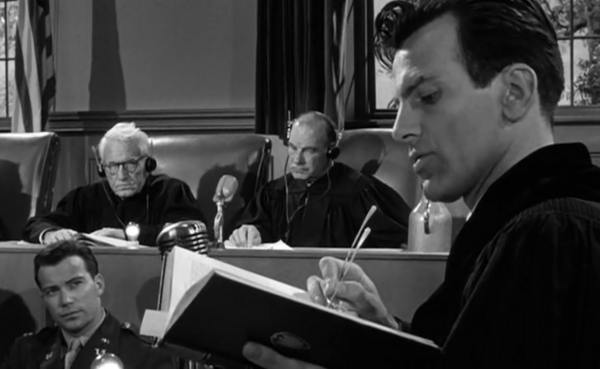#237 - Room 237
Rodney Ascher, 2012

A handful of theorists share their own extremely distinct interpretations of Stanley Kubrick's
The Shining.
It's a concept that is at once intriguing yet ridiculous - an entire feature-length documentary where a handful of people lay out their own pet theories as to what Stanley Kubrick was secretly trying to say when he made
The Shining. The film is an adaptation of the Stephen King novel about a man who brings his family along while he has to take care of a remote hotel during its wintry off-season - unfortunately, it turns out that the hotel is also home to some especially malevolent spirits. As far as Kubrick films went, it was definitely one of the most straightforward with its tale of supernatural horror. However, the theorists who are interviewed in this film insist that the film actually hides some far more complex and near-incomprehensible truths, which is apparently a given considering Kubrick's notorious perfectionist tendencies and fundamentally peculiar style of filmmaking. Of course, the film is quick to put up a disclaimer stating that the views expressed in the film don't necessarily reflect those of Kubrick or anyone involved in the making of
The Shining. After seeing the film, it's not hard to understand why.
One of the main problems I have with
Room 237 is that it's made up almost entirely of existing footage, which becomes a bit of a problem when it comes to understanding the theorists. Five theorists are interviewed but since you never see any of them on-screen and the film doesn't remind you who's talking at any given moment, it can be hard to tell most of them apart (the exception being Juli Kearns, the film's sole female interviewee). Some of the footage is cribbed from other movies, often with footage of
The Shining imposed over them to prove a point (such as audio interviews where people talk about seeing the film in theatres being synchronised to movie theatre scenes from Lamberto Bava's
Demons of all movies) The theories all tend to be extremely far-fetched ones that are rooted in the slightest of clues; one theorist claims that the film is about the genocide of Native Americans based off labels of tinned food, while another claims it's a Holocaust metaphor due to a recurring number and the presence of a colour-changing typewriter. Naturally, there's one theory that even ties in with the long-standing conspiracy theory that Kubrick actually filmed the Apollo 11 moon landing and filled
The Shining with subtle clues regarding his supposed involvement in the alleged hoax.
While most of these do basically come across as reading too much into things (especially the Native American genocide theory, which just seems to overextend on the canonical fact that the Overlook Hotel was built on an Indian burial ground), there are some points that genuinely make for fascinating insights into the film as it is, especially Kearns' incredibly detailed 3-D graphics outlining the physically impossible architecture of the building. This distinguishes itself because, out of all the supposed evidence of the posited theories in the film, the idea of Kubrick making a deliberate attempt at weird architecture in order to set a mood seems the most plausible, though that isn't saying much compared to the other theories. At one point in the film, one fan reads a claim that the film "should be seen forwards and backwards" and responds by literally combining two versions of the film - one playing backwards, one playing forwards - in order to spot the overlaps (as you can see in the header image). As with the 3-D graphs, this makes for interesting original visuals on the documentary's part, though the point it's trying to make does feel like quite a stretch even by this film's standards.
Depending on how much you like entertaining bizarre left-field theories that manage the impressive feat of seeming believable yet ridiculous at the same time,
Room 237 will definitely get some kind of emotion out of you, even if it is just frustration at having to spend 100 minutes listening to some seriously overreaching arguments. Fittingly enough, one could interpret
Room 237 as something more than a mere recording of these theories set to film. On the one hand, it could be a metaphor for the magical nature of film as an art form due to how it inspires people to come up with such elaborate yet contradictory observations over something as seemingly basic as a horror movie. On the other hand, it could be a really subtle way of satirising the type of navel-gazing viewers and critics whose contest to provide the most outlandish yet seemingly well-founded interpretation of the film should be passed off less as legitimate cinematic theory than as a kind of obsessive over-thinking. Sometimes a ghost story is just a ghost story. In any case, it was an interesting watch, but I'm hesitant to think of it as a great one.







 Thanks
Thanks 

